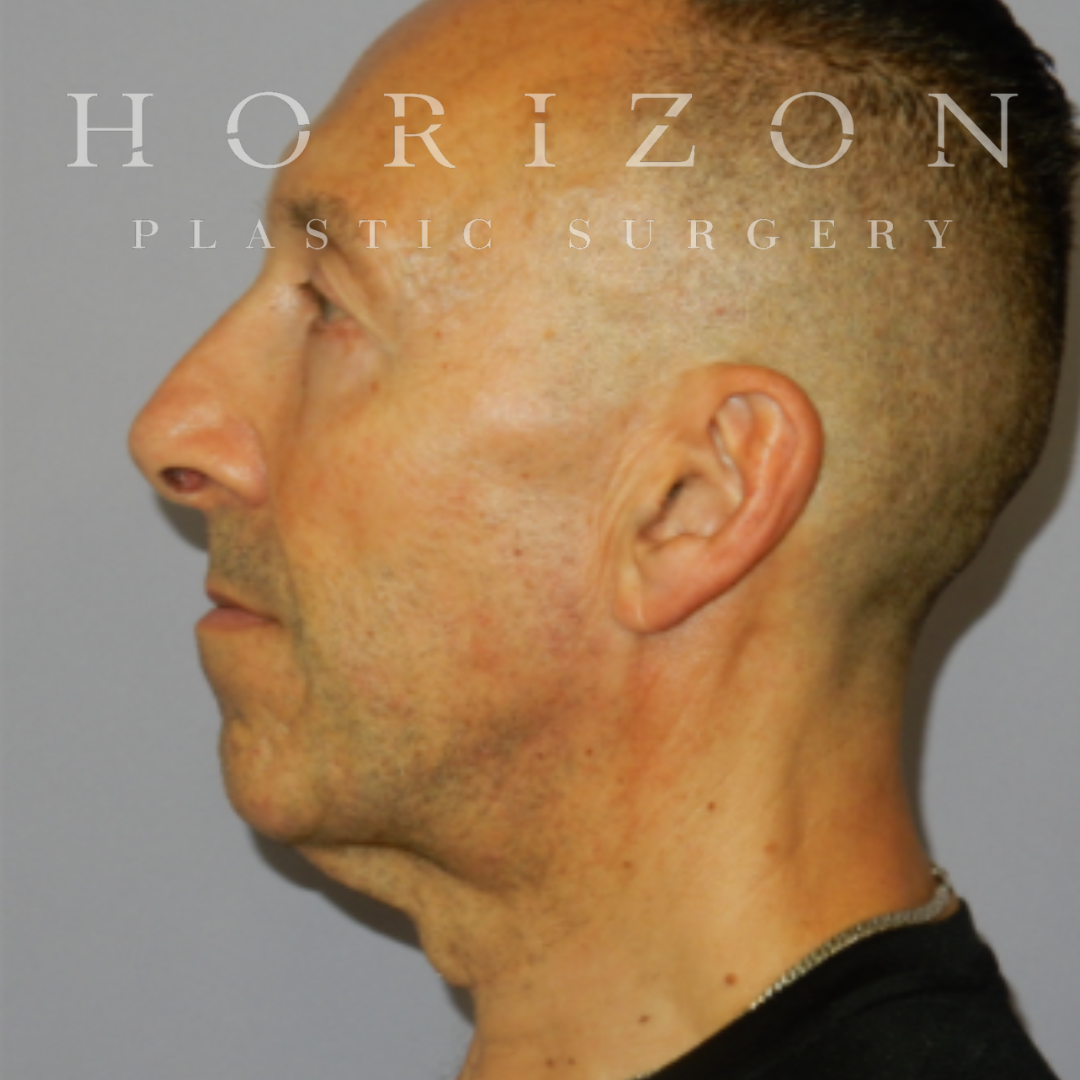
FACE LIFT (Meloplasty)

BLEPHAROPLASTY (Eyelid reduction)

BROWLIFT

FACIAL CONTOURING (IMPLANTS)
Facelift
The medical term for this procedure is meloplasty which literally means to shape or mould the cheek however even plastic surgeons refer to the procedure as a facelift.
The term is rather ironic because a traditional facelift does not affect the cheek but addresses the lower face and the neck. The cheek which is otherwise known as the midface can be included in the facial rejuvenation which is then referred to as an extended facelift. Plastic surgical procedures fall under the umbrella of 3 broad groups of operations. Those that are designed to restore abnormal anatomy, to improve normal features and to reverse the signs of ageing. Facelift falls into the latter group.
Facial rejuvenation aims to give a more youthful appearance and lustre to the face and neck regions and addresses the following common effects of ageing.
- Excess skin and fat in the neck
- Neck bands (caused by contraction of the platysma muscle)
- Lower facial jowls and marionette lines
- The midface and nasolabial fold
It is very important to note that the windswept, feline like appearing “Hollywood facelift” is a non-typical stereotype and that facial rejuvenation can be performed with minimal downtime and risks and natural looking results. (LINK to Philosophy of Facelift)
It involves an incision which is hidden in and around the natural creases of the ear. The plane under the skin is then dissected and undermined with tightening of the underlying SMAS layer which is the supportive layer of the face. The skin is then redraped and tightened whilst discarding the excess. A facelift is often combined with other forms of facial aesthetics such as upper and lower blepharoplasty and browlift.
Damien Grinsell – Before & Afters
Specialist Plastic & Reconstructive Surgeon
AHPRA Registration: MED0001207555
Any invasive procedure carries risks and individual results may vary depending on factors, not limited to but including age, genetics, diet, lifestyle and existing medical conditions. Before any surgery, we recommend you consult a qualified health practitioner who should discuss at length these risks, including possible complications and recovery instructions specific to your procedure. If unsure, always seek a second opinion from a specialist surgeon.
45-54 year old woman treated with Facelift
45-54 year old woman treated with Facelift
65-75 and up year old woman treated with Facelift
65-75 and up year old woman treated with Facelift
65-75 year old woman treated with Facelift
65-75 year old woman treated with Facelift
45-54 year old woman treated with Facelift
45-54 year old woman treated with Facelift
55-64 year old man treated with Facelift and upper blepharoplasty. Extended modified MACS facelift and upper blepharoplasty. Note patient did not want eyelid ptosis corrected.
55-64 year old man treated with Facelift and upper blepharoplasty. Extended modified MACS facelift and upper blepharoplasty. Note patient did not want eyelid ptosis corrected.
55-64 year old woman treated with Facelift and lower blepharoplasty. Extended MACS facelift and lower lid blepharoplasty.
35-44 year old woman treated with Facelift and neck lift after massive weight loss caused signs of premature ageing
35-44 year old woman treated with Facelift and neck lift after massive weight loss caused signs of premature ageing

































